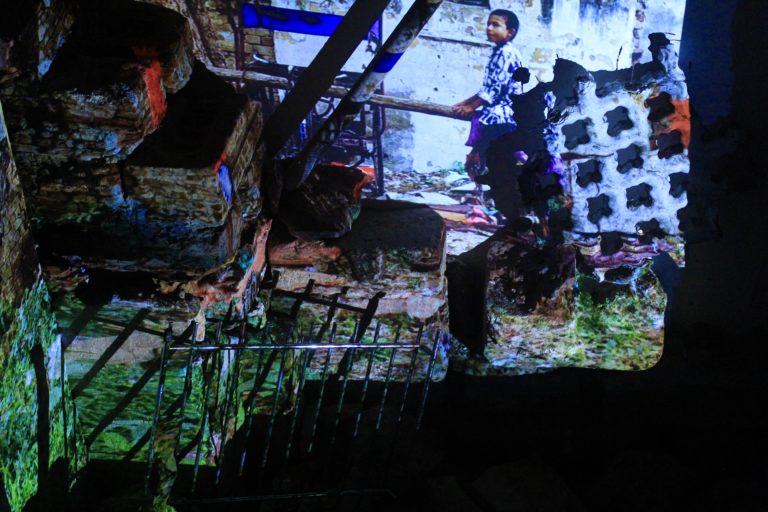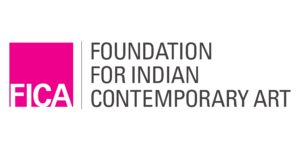Mapping the Shifting Terrains
Reading Public/Reading Art - A Collaboration with FICA

Ankan Datta, details from his installation made as part of ON-SITE: A Workshop exploring process, dialogue
and experimentation, organised by FICA and SAF, 2019
Key information
Application Deadline: 1st September 2022
Dates: September: 17, 24; October: 1, 8, 15, 22 & 29
Timings: Every Saturday, 10 am to 1 pm
Sessions: 1 session per week
These 7 sessions will be led by the facilitator. These sessions will include 3 online sessions led by guest speakers. This course will be held in person at the FICA Reading Room, New Delhi. Three online sessions will be additionally scheduled with guest speaker
Venue: FICA Reading Room, F-213 / E-2, 2nd Floor, Old M B Road, Lado Sarai 110030
Course Facilitator: Santhosh S
Fees: INR 1000/-
If the price of this workshop is prohibitive, and the fees prevent you from participating, kindly contact us at [email protected]. We have a limited number of supported places to enable participants to attend this workshop, with a fee waiver.
Please note the workshop will be limited to 15 participants only.
About
This course, in collaboration with Foundation for Indian Contemporary Art (FICA), attempts to think together and interrogate the complimentary as well as contestatory relationship of the notion of the public, and the nomenclature of public art. Structured as a reading group, it will explore the multiple dimensions of public art practices, their audiences and constituent, emerging vocabularies. The role of art in the public realm in the 21st Century is one with a multidisciplinary emphasis, and this workshop seeks to map out the present socio-cultural/ political moment for public art through modes of reading and writing that will critically consider what public art is un/able to respond to today.
When we outline the breadth of the definitions and details of public art, the terms that arise in association include notions of community, site, intervention, collaboration, appropriation, citation, infrastructure, reception, conversation, curating, participation, negotiation, interface, spectacle and performance, among several others. Through the framework of this workshop, we hope to accomplish a critical positioning and dissecting of intersections between some of these terms and concepts: public art, public space and public sphere (within it the larger context of urbanity, visuality and their expanses and limits). This includes the discussions regarding the formation and affectivity of different publics/audiences; and also possibly, the relationship between public art and the environment, a theme that is an ongoing engagement for FICA via different platforms.
What do artistic practices, working with aspects of the rapidly transforming public realm today, offer to the people and communities they serve? What are the forms of engagements that public art assumes as it unfolds within and across different spaces? What are the kinds of social relations and experiences elicited and invited through such interventions? Platforming these enquiries, we would like to read and highlight the methodologies that drive art practices in the public realm, reflecting upon how the field may be discussed, and how different perspectives and approaches in public art practices reframe and subvert meanings of site and situation. The sessions will also be a process to think about how reading and writing as practices can be positioned within such circuits, particularly focusing on the kinds of questions that can be asked of public art/art and its publics.
Some of the modules in the course will focus on
1. Art, Public and the Counterpublic
2. Mapping the Terrain
3. The Commons
4. Rethinking Public/Art
5. Placing Public/Art
requirements
The course is open for those with a deep interest in the subject of Public Art and are working, or researching on it or on other allied areas. The course will require some amount of reading ahead of each session. Participants who sign up for it should be ready to commit to the whole programme and be present for every session. The sessions will take place in English.
The workshop will take place at the FICA Reading Room, Delhi and participants are required to be present in person for it. There are no provisions to support travel and stay costs for out station participants. So please apply keeping this in mind.
Applicants are requested to keep the following in mind
1. We have a limited number of seats for the course, numbering 15.
2. We will confirm your participation by September 2, 2022.
3. The medium of instruction for this course is English.
4. All readings will be provided to the selected participants ahead of time so that they may familiarise themselves with the required texts.
COURSE EDUCATOR

Dr. Santhosh Sadanandan is an art historian and cultural theorist based in New Delhi. He is trained in Art History and Criticism with BFA and MFA degrees from the Faculty of Fine Arts, Maharaja Sayajirao University of Baroda. He received his PhD in Visual Art from the School of Culture and Creative Expressions (SCCE), Ambedkar University Delhi. His doctoral thesis was titled ‘Spectres of Caste: Institutionalisation of Art in Modern India.’ It examined various aspects of the institutionalisation of culture and the role that categories such as caste played in the structuration of artistic production in modern India.
One of the founding members of SCCE, he has been a part of the team that developed a vision document for the school. Before SCCE, Dr. Sadanandan taught Art History for two years from 2005-2007 at the Department of Art History and Aesthetics, Faculty of Fine Arts, M.S. University of Baroda. He was also a guest faculty at the School of Art and Aesthetics, Jawaharlal Nehru University, New Delhi from 2009 to 2011. He worked as an Academic Fellow for SCCE, AUD from 2011-2012, before joining as an Assistant Professor in the same School. His areas of interest are Critical Theory and Philosophy.
ABOUT FICA

The Foundation for Indian Contemporary Art is a not-for-profit organisation that aims to broaden the audience for contemporary Indian art, enhance opportunities for artists, and establish a continuous dialogue between the arts and the public. We encourage and support innovative practices in the field of visual arts through collaborations, grant-giving and experimental pedagogies. Over the past 15 years, FICA has worked to develop active public programming with the intention of bringing contemporary art closer to its audience. It has remained invested in providing annual grants to various practitioners (whether artists, writers, researchers, public art projects), and creating and establishing sites of learning that take shape as forums, workshops and seminars. We remain compelled to find new ways of sustaining its fundamentals as an organization committed to consistently engaging with different audiences, stakeholders and communities.

